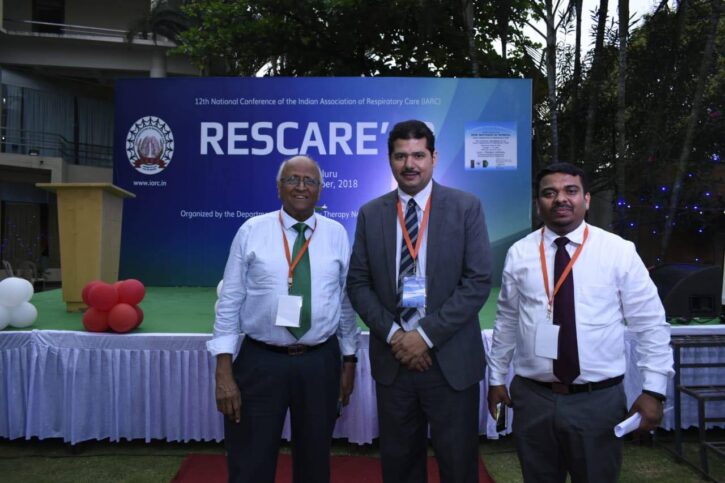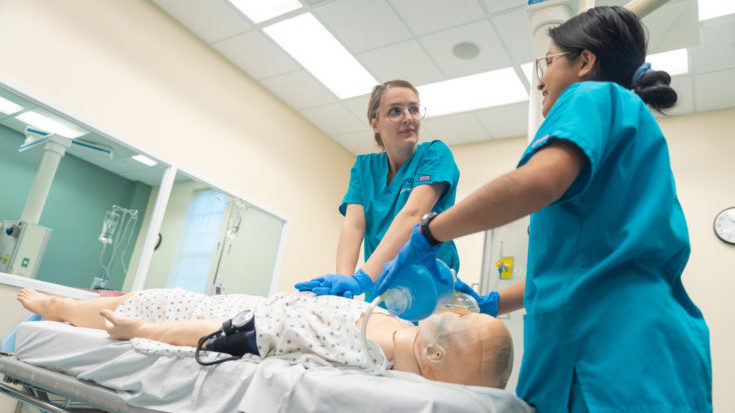
In 2015, the AARC issued a new goal calling for 80 percent of respiratory therapists to either have, or be working toward, a bachelor’s degree by 2020. Why did the Association issue the goal and what does it mean for the profession? The AARC made created this goal for a multitude of reasons you can read about in this previous article.
But what about a master’s degree? You’ve received your bachelor’s degree and now what? We spoke with Megan Koster EdD, RRT, who serves as clinical associate professor, chair of the department of respiratory care, and director of master of science in respiratory care at Boise State University. She provided great insight into this life changing decision.
For individuals considering pursuing a master’s degree, what are considerations that can tip the scales?
This is a question that is stirring in the minds of many RTs. As the AARC continues to push for 80% of the workforce to hold a baccalaureate degree, as well as the initiatives set forth to pursue a baccalaureate-as-entry level for the profession, professional trajectory should be something all therapists consider. It becomes, then a question of what the trajectory looks like.
“I urge those interested in advancing their education to do so; an advanced degree will never close doors to you,” Koster said. “In fact, the journey of advancing your education may expose opportunities that one may not have thought were accessible to them; different avenues, if you will. Expanding the representation of respiratory care into new environments is wholly beneficial for the profession.”
As one considers advancing their education, there are some things to keep in mind
Tips from Koster-
First, consider which avenues are of the most interest to you. That is, where do you see yourself in five years? Ideally, we’d love to see talented practitioners and global thinkers stay in the profession to help advance it as we see both administrative and academic turnover. Koster believes it is imperative that those responsible for leading the profession earn a degree related to the profession, if possible.
An MSRC-prepared department leader is an outwardly recognizable advocate for the expansion of scope of the respiratory care provider.
“I think this is an important distinction when compared with other advanced degree options,” Koster said. “We want RTs at the table where big decisions are being made. We need other disciplines to see us beyond the bedside. Thankfully, we are seeing an increase in the availability of a Master’s of Science in Respiratory Care (MSRC) degrees across the nation. I think there is variability among programs in terms of foci, so I would recommend that any potential student take a look at both the curriculum and the program learning outcomes in the context of their professional goals.”
A well-prepared MSRC graduate should be able to delineate the distinction of an advanced degree within the field.
“I have seen our students be afforded opportunities to advance their career while still enrolled in our graduate program, simply because their employers notice the distinction, applicability, and value of the degree,” said Koster. “That’s not only exciting, but these experiences serve as tangible proof that there is value in advancing your respiratory care education.”
Show me the money
However, any discussion of advancing your degree should include a mention of financial commitment and recuperation. This is a very real concern, especially throughout respiratory care. Many students believe that a more general advanced degree will be more marketable than something like an MSRC. Koster, again, urges any prospective student to consider, and temper, the market which they are attempting to enter.
For example, if you aspire to teach respiratory care in an academic setting, you must consider that several institutional accreditors require that faculty hold an advanced, or terminal, degree in the field of which they teach. Therefore, a Master of Business Administration (MBA) may not be beneficial to you.
Additionally, Koster would urge any prospective students to weight the cost of a program against the learning outcomes. That is, can the program representatives speak to how their program will prepare you for the job you desire? And what are the options to tailor the degree to your interests?
Research is key
“Overall, I think the big message is to do your research,” said Koster. “Any program director should be prepared to answer questions regarding curriculum, program learning outcomes, and how those relate to the contexts of various job markets.”
Some helpful resources include, asking whether you can speak to a current student or a recent graduate for an insider’s perspective. If you can’t find answers about how the degree applies to your professional goals, Koster recommends to continue to explore your options. The right degree for you is out there!
Learn more about Degree Advancement!
Email newsroom@aarc.org with questions or comments, we’d love to hear from you.














